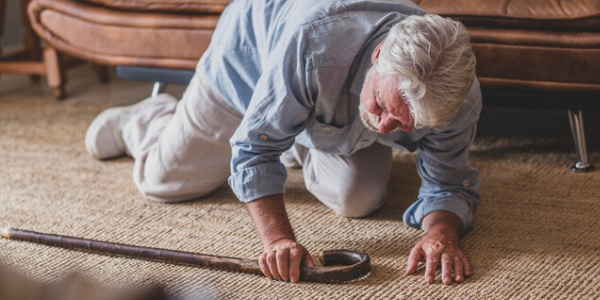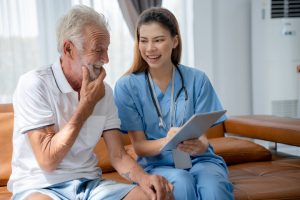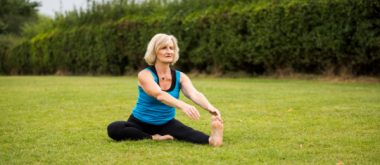There is a close link between older people’s attitudes toward their own aging and their physical recovery after a fall. This is the conclusion of a new study by Imperial College London and Coventry University, which highlights for the first time the importance of psychological factors in physical recovery after a fall. The study was published in the Journal of the American Geriatrics Society.
A Positive Attitude Toward Aging is Associated With Fewer Physical Problems After a Fall
Falls among older people are a major health problem, as they can lead to serious physical disabilities and hospitalizations and impair the independence of those affected. Falls among older people are associated with high costs, among other things. However, not all older people who fall experience physical limitations. It is therefore crucial to understand why some people recover better than others in order to develop therapies and measures. In the study, the researchers found that people who had a more positive attitude toward aging at the start of the study—for example, those who said that age did not prevent them from doing what they wanted to do in life—were significantly less likely to have physical problems or need help with everyday tasks after a fall.
The study included longitudinal data from nearly 700 older adults aged 60 to 90 from across England who had not experienced a fall in the previous years. The data included responses to questionnaires that measured attitudes and beliefs about aging. The researchers then examined members of this group who had suffered a fall in the following year to explore links between their subsequent recovery after the fall and their initial attitudes and beliefs about aging. This included measurements of walking speed after the fall, the need for assistance with daily activities, and the degree of physical inactivity of the person after the fall. Those who initially had a more “positive” attitude toward aging—for example, the belief that getting older does not prevent them from doing what they want to do—recovered physically much better in the months following a fall.
The results were independent of other important factors such as age, gender, depression, and physical functioning before the fall. The results also took into account whether or not the fall had resulted in physical injury. Therefore, the researchers say that the results cannot simply be attributed to older people with a “positive” attitude being younger, fitter, less depressed, or generally less prone to injury. The researchers found that individuals who scored the highest possible score on the “self-perception of aging” measures—i.e., who had the most positive attitude— were 162% less likely to have a slower walking speed, 200% less likely to be dependent on others for everyday activities, and 123% less likely to be physically inactive after a fall, compared to those with the lowest possible scores.
Improving Recovery and Well-Being
Dr. Toby Ellmers from Imperial College London’s Department of Brain Sciences, who co-led the study, said: “Those who expressed more positive feelings about their own aging seemed to be protected from more serious physical consequences after a fall. There were significant differences in the speed of physical recovery among the people we studied, and this seemed to be linked to their initial attitude toward aging.” Co-lead author Dr. Mathew Hill, from the Center for Physical Activity, Sport, and Exercise Sciences at Coventry University, said: “Although we knew from previous research that negative attitudes and beliefs about aging are associated with an increased risk of negative health outcomes such as stroke and mortality, this is the first study to specifically link them to physical recovery after a fall.”
According to the experts, these findings suggest that changing the way some older people view their aging process could play an important role in improving recovery and well-being. The authors point out that the present study did not take into account the severity of the various falls (except for injuries) and does not allow definitive conclusions to be drawn about causality. In a next step, the researchers would like to investigate whether addressing negative perceptions of aging can help prevent physical limitations after a fall.






